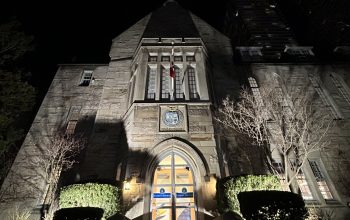Photo Credit: CUPE 3902.org
CUPE 3902 deals with negotiations with the university under the new legislation presented in Bill 124
Rinna Diamantakos, Associate News Editor
Unit 1 and Unit 5 of the Canadian Union of Public Employees (CUPE) 3902 are currently working with the University of Toronto (U of T) to ratify their collective agreements, which focus on salary and wages for university employees, as well as health and dental benefits, paid leaves, and workers’ rights.
The subset of CUPE, known as CUPE 3902, represents contract academic workers at U of T. Established in 1973, CUPE 3902 is the first legally recognized union of Teaching Assistants (TAs) in North America. Since its inception, CUPE 3902 has grown to include students and postdoctoral course instructors, TA trainers, accessibility service workers, exam invigilators, lab demonstrators, writing instructors, sessional lecturers, and postdoctoral research fellows.
CUPE 3902 has established 5 Units of Collective Agreement. The largest unit, Unit 1, establishes the rights and responsibilities of the union, bargaining-unit members and the employer, and represents postdoctoral fellows, graduate students, and undergraduate students who are employed in teaching roles at U of T. This unit is currently working on negotiations with the university.
The Collective Agreement for Unit 1 was successfully ratified by the CUPE 3902’s Bargaining Committee and will expire on December 31, 2020. The committee will now draft proposals that will be presented to the university.
Unit 5 of CUPE 3902 is also working to ratify its agreement with the university in 2020. Unit 5, which represents some postdoctoral fellows employed by the university, prioritizes greater work flexibility, health and dental benefits, paid pregnancy and parental leave, paid leave for survivors of sexual and domestic violence, as well as agreements with the university about providing assistance to postdoctoral fellows who are relocating to Toronto to attend U of T.
The agreement also outlines plans for annual salary increases of a 1% minimum from postdoctoral salaries and an increase of 1% for those who have multi-year contracts.
However, negotiations with the university are currently being challenged by Bill 124.
On June 5, 2019, the Ford Government announced Bill 124. Also called the “Protecting a Sustainable Public Sector for Future Generations Act,” Bill 124 was created to ensure that the “increases in public sector compensation reflect the fiscal situation of the province,” by limiting and capping compensation and salary increases for unionized and non-unionized employees in the Ontario public sector, particularly applying to the Ontario government and its agencies, school boards under the Education Act, universities, colleges, and hospitals under the Public Hospitals Act, and some non-profit organizations, to name a few.
Bill 124 also has the power to issue instruction to employers and their organizations requiring them to submit information that demonstrates their compliance with the legislation outlined in the Act. Information that can be requested includes information on compensation policies, plans and programs, negotiated settlements, bargaining mandates, and moderation periods.
In receiving this information, the President of the Treasury Board has the authority to determine that a collective agreement is not in compliance with the Act, which will require the issuing of a new collective agreement that is consistent with Bill 124.
Bill 124 has been publicly challenged by labour unions across the province for its role in potentially lowering salary and compensation for public sector workers and interfering with employer/employee negotiations. CUPE 3092 has joined other labour unions in charter challenges against Bill 124.
Bill 124 has the power to control negotiation cuts at the bargaining table. Bargaining committees no longer have the ability to keep up with inflation or the increasing cost of living when negotiating salary and wages — a power that CUPE 3092 believes will limit its negotiating power.
Due to the restrictions placed on negotiations by Bill 124, CUPE 3902 may decide to carry out a strike vote. This will require union members to vote on whether or not to call for a strike mandate, which could lead to legal strike action.
Voting in favour of a legal strike would not be a new decision for CUPE 3902, which engaged in legal strikes in 2000, 2015, and 2018 during lengthy negotiation periods with the university.
Although a decision has yet to be made on whether a legal strike is necessary, tension surrounding negotiations has been heightened by the new restrictions put in place by Bill 124. CUPE 3902 is dedicated to ensuring that continuing cuts and restrictions have minimal impact on university employees.




